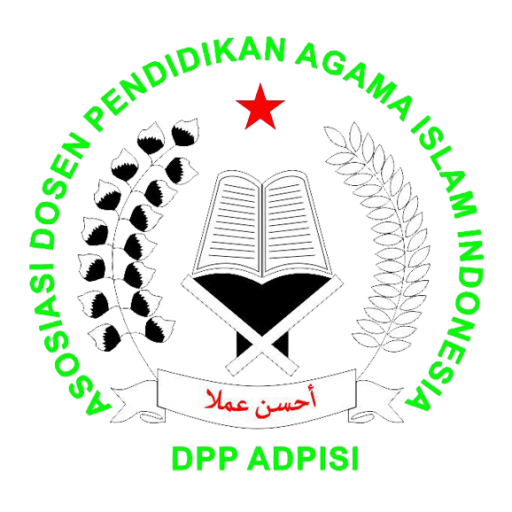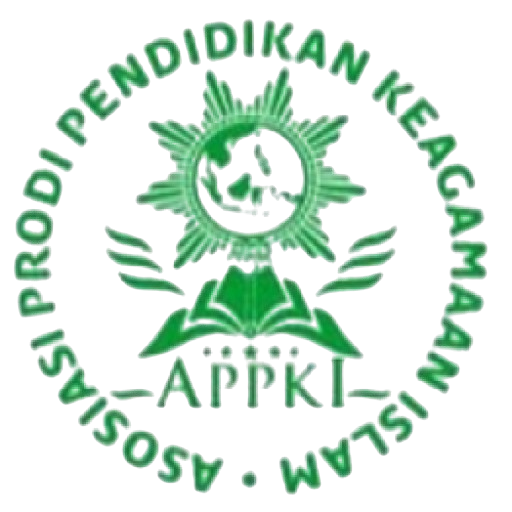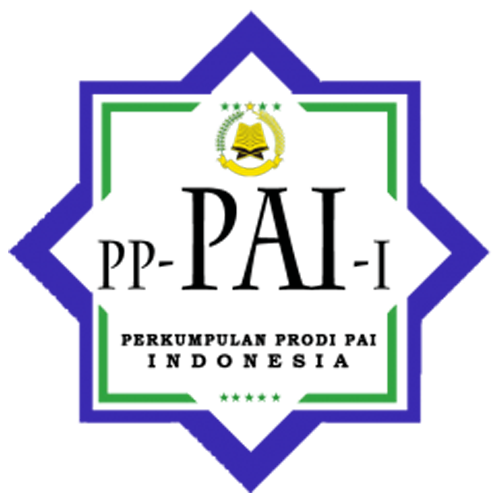MODEL PROJECT BASED LEARNING (PJBL): DEFINISI, UNSUR-UNSUR, DAN IMPLIKASINYA DALAM PEMBELAJARAN PENDIDIKAN AGAMA ISLAM DI PERSEKOLAHAN
Abstract
Abstract
In the last five years, the project-based learning (PjBL) model has colored the treasury of learning practices in schools and universities. This article discusses the definition, underlying theory, and elements of the PjBL model and its implications for Islamic Religious Education (PAI) learning. A qualitative approach with a library method was chosen as the design, so that references in the form of books, journal articles, and websites that display information about PjBL, PAI, and the relationship between the two are used to be analyzed through the stages of abstraction, interpretation, and conclusion. Based on conceptual research, this article concludes that project-based learning is a learning process that is expanded with investigations and challenges to stimulate the growth and mastery of 21st century skills in students' real lives, which is based on constructivist, social constructivist, experiential, independent, and discovery-based learning theories. In an effort to maximize the performance of project-based learning, model elements such as syntax, reaction principles, social and support systems must be carried out strictly and optimally. An example of a project-based learning design in PAI learning in schools is included in this article as a development of conceptual implications.
Keywords: Project Based Learning, Implications, Learning Model, Islamic Religious Education, School
Abstrak
Dalam lima tahun terakhir ini model pembelajaran berbasis projek (PjBL) telah mewarnai khazanah dalam praktik pembelajaran di persekolahan dan perguruan tinggi. Artikel ini membahas tentang definisi, teori yang melatar belakangi, dan unsur-unsur model PjBL serta implikasinya terhadap pembelajaran Pendidikan Agama Islam (PAI). Pendekatan kualitatif dengan metode kepustakaan dipilih sebagai desainnya, sehingga referensi dalam bentuk buku, artikel-artikel jurnal, serta web yang menampilkan informasi tentang PjBL, PAI, dan keterkaitan di antara keduanya digunakan untuk kemudian dianalisis melalui tahap abstraksi, interpretasi, dan disimpulkan. Berdasarkan penelusuran secara konseptual, artikel ini menyimpulkan bahwa pembelajaran berbasis proyek merupakan proses pembelajaran yang diperluas dengan penyelidikan dan tantangan untuk merangsang pertumbuhan dan penguasaan keterampilan abad 21 dalam kehidupan nyata siswa, yang didasari oleh teori belajar kontruktivis, konstruktivis sosial, eksperiensial, mandiri, dan berbasis penemuan. Dalam upaya memaksimalkan kinerja pembelajaran berbasis proyek, unsur-unsur model seperti sintaks, prinsip reaksi, sistem sosial dan pendukung harus dilakukan secara ketat dan optimal. Contoh rancangan pembelajaran berbasis proyek dalam pembelajaran PAI di persekolahan disertakan dalam artikel ini sebagai pengembangan implikasi konseptual.
Kata kunci : Model Project Based Learning, Implikasi, Model Pembelajaran, Pendidikan Agama Islam, Sekolah
Full Text:
PDF (Bahasa Indonesia)References
Adekantari, P. (2020). The influence of instagram-assisted project based learning model on critical thinking skills. Journal of Educational and Social Research, 10(6), 315-322.
Artama, K. K. J., Budasi, I. G., & Ratminingsih, N. M. (2023). Promoting the 21st century skills using project-based learning. Language Circle: Journal of Language and Literature, 17(2), 325-332.
Astungkoro, R. (2023). Perundungan di Satuan Pendidikan Masih Marak, KPAI Ungkap Faktor Penyebabnya. REPUBLIKA. https://news.republika.co.id/berita/s7tlsc349/perundungan-di-satuan-pendidikan-masih-marak-kpai-ungkap-faktor-penyebabnya
Blumenfeld, P. C., Soloway, E., Marx, R. W., Krajcik, J. S., Guzdial, M., & Palincsar, A. (1991). Motivating project-based learning: Sustaining the doing, supporting the learning. Educational Psychologist, 26(3-4), 369-398.
Brown, J. S., Collins, A., & Duguid, P. (1989). Situated cognition and the culture of learning. 1989, 18(1), 32-42.
Bruner, J. S. (1961). The act of discovery. Harvard educational review.
Bruner, J. S. (1973). Beyond the information given: Studies in the psychology of knowing. WW Norton.
Chen, C.-H., & Yang, Y.-C. (2019). Revisiting the effects of project-based learning on students’ academic achievement: A meta-analysis investigating moderators. Educational Research Review, 26, 71-81.
Chu, S. K. W., Reynolds, R. B., Tavares, N. J., Notari, M., & Lee, C. W. Y. (2021). 21st century skills development through inquiry-based learning from theory to practice. Springer.
Danandjaja, J. (2014). Metode Penelitian Kepustakaan. Antropologi Indonesia.
Darmalaksana, W. (2020). Metode Penelitian Kualitatif Studi Pustaka dan Studi Lapangan. Pre-Print Digital Library UIN Sunan Gunung Djati Bandung.
Dosmarohaa, A. Y., & Sunardi, S. (2024). Application of the Project Based Learning Model in the Implementation of Pancasila Values in History Learning in Phase E of High Schools in Salatiga. EduLine: Journal of Education and Learning Innovation, 4(1), 97-104.
Fadilah, N., Rahmi, S., & Puspita, P. A. (2024). Identification Of Project Based Learning Implementation On Islamic Religious Education In Public High School In Tarakan City. Jurnal MUDARRISUNA: Media Kajian Pendidikan Agama Islam, 14(1), 55-67.
Fahma, D. I., Krisdiana, I., & Trianawati, E. (2023). Implementation of Project Based Learning with Practicum Methods to Improve Critical Thinking Skills of Students. Science Education and Application Journal, 5(2), 69-79.
Firmansyah, M. I., Surahman, C., Lestari, W., Septiani, S., & Sudaryat, M. R. (2023). Pendidikan Agama Islam dan Pembangunan Karakter Siswa Sekolah Dasar: Studi Eksplorasi. EDUKASI: Jurnal Penelitian Pendidikan Agama dan Keagamaan, 21(1), 46-58.
Hanisa, S., Mustapa, K., Ratman, R., Ahmar, D. S., & Mawaddah, H. J. J. o. D. L. I. (2023). The Influence of Project-Based Learning Model on Students' Learning Outcomes in Reaction Rate Material.
Hardiansyah, F. (2021). Bullying, empati, dan Era Society 5.0. http://www.smanzapulung.sch.id/read/54/bullying-empati-dan-era-society-50.
Hmelo-Silver, C. E. (2004). Problem-based learning: What and how do students learn? Educational psychology review, 16, 235-266.
Hodge, M. (2019). A Case for the Use of Nonparametric Statistical Methods in Library Research. Evidence Based Library and Information Practice, 14(2), 109-112. https://doi.org/10.18438/eblip29563
Hunt, D. E. (1974). Student Conceptual Level and Models of Teaching: Theoretical and Empirical Coordination of Two Models. ERIC.ed.gov.
Indonesia. (2015). Peraturan Pemerintah Republik Indonesia Nomor 55 Tahun 2007 tentang Pendidikan Agama dan Keagamaan Jakarta: Sekretariat Negara Republik Indonesia
Johnson, D. R., Renzulli, L., Bunch, J., & Paino, M. (2013). Everyday observations: Developing a sociological perspective through a portfolio term project. Teaching Sociology, 41(3), 314-321.
Johnson, D. W. J., R.T. . (2009). An Educational Psychology Success Story Active Learning Strategies For Second And Third Grades. Teaching & Teacher Education, 25(4), 482–489.
Khatibah, K. (2011). Penelitian kepustakaan. Iqra': Jurnal Perpustakaan dan Informasi, 5(01), 36-39.
Knowles, M. S. (1975). Self-directed learning: A guide for learners and teachers. The Adult Ed ucation Company.
Kolb, D. A. (2014). Experiential learning: Experience as the source of learning and development. FT press.
Koltonski, S., & Xu, T. (2023). Using Project Based Learning to Teach Applied Behavior Analysis Knowledge and Skills to Pre-Service Teachers. Texas Educator Preparation, 7(2), 9-28.
Lenz, B., Wells, J., & Kingston, S. (2015). Transforming schools using project-based learning, performance assessment, and common core standards. John Wiley & Sons.
Main, K. (1979). The power-load-margin formula of Howard Y. McClusky as the basis for a model of teaching. Adult Education, 30(1), 19-33.
Markham, T. (2011). Project based learning a bridge just far enough. Teacher librarian, 39(2), 38.
Masyrafina, I. (2023). KPAI Catat Ada Sebanyak 2.355 Kasus Pelanggaran Perlindungan Anak pada 2023. REPUBLIKA. https://news.republika.co.id/berita/s29ndx349/kpai-catat-ada-sebanyak-2355-kasus-pelanggaran-perlindungan-anak-pada-2023
Mulyadi, A., Mustofa, R. F., & Diella, D. (2023). The Effect of a Project-Based Learning Model on Learning Outcomes and Collaboration Skills. Bioeduca: Journal of Biology Education, 5(2), 155-168.
Nailasariy, A., Habibi, B. Y., Kubro, K., & Setyaningrum, A. R. (2022). Implementation of the Design for Change (DFC) Method through Project-Based Learning in Developing Intrapersonal and Interpersonal Skills of Islamic Religious Education Students. Jurnal Pendidikan Agama Islam, 20(1), 351-369.
Pantiwati, Y., Kusniarti, T., Permana, F. H., Nurrohman, E., & Sari, T. N. I. (2024). The effects of the blended project-based literacy that integrates school literacy movement strengthening character education learning model on metacognitive skills, critical thinking, and opinion expression. European Journal of Educational Research, 12(issue-1-january-2023), 145-158.
Prasetiyo, W. H., Sumardjoko, B., Muhibbin, A., Naidu, N. B. M., & Muthali'in, A. (2023). Promoting digital citizenship among student-teachers: The role of project-based learning in improving appropriate online behaviors. Participatory Educational Research, 10(1), 389-407.
Pratama, D. M. A., & Abidin, Z. (2024). Implementation of Project-Based Learning Model in Islamic Religious Education for Grade X at Muhammadiyah Senior High School 1 Surakarta. JUSPI (Jurnal Sejarah Peradaban Islam), 8(1), 177-184.
Pratiwi, V. D., Nugraha, N., Muttaqin, Z., Usman, U., Maslani, M. J. J. J. o. E. T. I. S. S., & Health. (2024). Digital Teaching Materials for Islamic Religious Education Based on Project Based Learning: Needs Analysis and Development Study.
Puspitaningrum, P., Mansur, R., & Hakim, D. M. (2023). The active learning approach to smp bayt al-hikmah students: A case study of learning Islamic Religious Education in Islamic boarding schools. Jurnal Tarbiyah, 30(1), 160-175.
Rahayu, R., & Indriyanti, D. R. (2023). An ethnosains based project based learning model with flipped classroom on creative thinking skills. Jurnal Penelitian Pendidikan IPA, 9(8), 348-355.
Rahmania, P., Syafe'i, M., & Firmansyah, M. I. (2024). Tujuan dalam Pendidikan Islam: Eksplorasi ayat Al-Qur’an dan Manusia Sebagai Objek Pendidikan. Rayah Al-Islam, 8(1), 259-271.
Suradika, A., Dewi, H. I., & Nasution, M. I. (2023). Project-based learning and problem-based learning models in critical and creative students. Jurnal Pendidikan IPA Indonesia, 12(1), 153-167.
Suryandari, K. C., Rokhmaniyah, R., & Wahyudi, W. (2023, 2023). The effect of whatsapp as a tool for learning in Scientific Reading Based Project (SRBP) model to enhance collaborative and critical thinking skill of teacher candidats. AIP Conference Proceedings,
Sutrisno, S., & Nasucha, J. A. (2022). Islamic Religious Education Project-Based Learning Model to Improve Student Creativity. At-Tadzkir: Islamic Education Journal, 1(1), 13-22.
Syafitri, E., Saragih, S., Sari, N., Anim, A., Umami, R., Batubara, I. H., & Rahmadani, E. (2022). Implementation of PBL (Project-Based Learning) model through a STEM approach (Science, Technology, Engineering and Mathematic) on students’ critical thinking skill in junior high school.
Thomas, J. W., Mergendoller, J. R., & Michaelson, A. (1999). Project based learning: A handbook for middle and high school teachers. Buck Institute for Education.
Trilling, B., & Fadel, C. (2009). 21st century skills: Learning for life in our times. John Wiley & Sons.
Tsybulsky, D., & Muchnik-Rozanov, Y. (2019). The development of student-teachers' professional identity while team-teaching science classes using a project-based learning approach: A multi-level analysis. Teaching and Teacher Education, 79, 48-59.
Umar, S., Silangen, P. M., & Mandang, T. (2023). Manajemen pembelajaran partisipatif berbasis project based learning pada materi Fisika Hukum Pascal. Charm Sains: Jurnal Pendidikan Fisika, 4(2), 55-62.
Vygotsky, L. S. (1978a). Interaction Between Learning And Development General Genetic Psychology, 22(2), 193–243.
Vygotsky, L. S. (1978b). Mind in society: The development of higher psychological processes. Harvard University Press.
Wiggins, G., & McTighe, J. (2005). Understanding understanding. Understanding by design, 35-55.
Wijayanti, C., Andari, T., & Baity, N. (2023). Improving Project-Based Skills and Science Learning Outcomes of Learners through Project-Based Learning Model in Class VII-D SMP Negeri 1 Bojonegoro. Science Education and Application Journal, 5(2), 138-147.
Yanti, N., & Rahmad, M. (2023). Application of PjBL (Project Based Learning) Based Physics Learning Model to Improve Collaboration Skills and Creative Thinking Ability of Students. Jurnal Penelitian Pendidikan IPA, 9(11), 9973-9978.
Zed, M. (2004). Metode peneletian kepustakaan. Yayasan Obor Indonesia.
DOI: https://doi.org/10.17509/tk.v22i2.75469
Refbacks
- There are currently no refbacks.
Copyright (c) 2024 Mokh. Iman Firmansyah, Saepul Anwar, Indah Purnamasari, Sudirman Sudirman

This work is licensed under a Creative Commons Attribution-ShareAlike 4.0 International License.
EDITORIAL OFFICE:
Islamic Education Program
Faculty of Social Science Education
UPI The Education University
Jl. Dr. Setiabudhi No. 229 Bandung 40154 Jawa Barat - Indonesia
Telp. 022-2013163
E-mail: taklim@upi.edu
The Jurnal TAKLIM: Jurnal Pendidikan Agama Islam, published by Program Studi Ilmu Pendidikan Agama Islam (IPAI), Fakultas Pendidikan Ilmu Pengetahuan Sosial (FPIPS), Universitas Pendidikan Indonesia (UPI), is licensed under a Creative Commons Attribution-ShareAlike 4.0 International License
Stat Counter:



















